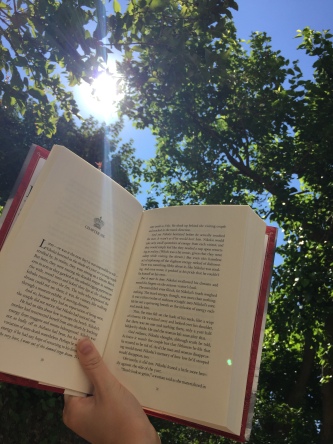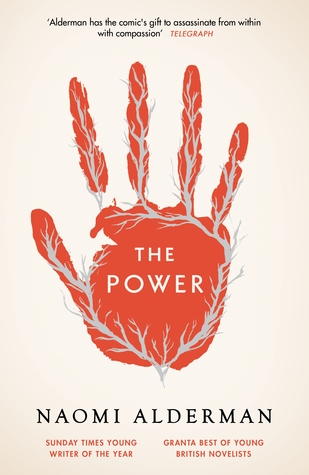It is past the halfway point for 2017, and I know that each one of these Wrap Up posts are sounding a bit repetitive now as in every single one, I think I’ve hardly read anything – and then I get to writing this update and realise that, hang on, I’ve actually done well. I’ll do my best next time to not mention it, but honestly it’s surprising how quickly you can read something and then completely forget about it if it didn’t make you feel something strongly – be that love or hate. I tend to remember books I hate far more than many of the books I love, instead of remembering all those mediocre books that probably deserve more love than I gave them.
Right, that’s enough blabbing, onto the wrap up.
First off was This Is Going to Hurt by Adam Kay, a non-fiction book that is out later this year that I have honestly not stopped talking about since finishing. Adam Kay is a comedian, but used to be a junior doctor – and was one for many years. This book is an amalgamation of the diaries he kept as a junior doctor, and let me tell you the entries are heartwarming, hilarious, charming, gripping, and will make you cry with genuine despair and utter delight. This had me laughing out loud on the tube as well as sniffling on the bus, but I was unable to put it down. It is definitely a favourite for this year, and I can’t wait until everyone has a chance to read it – fingers crossed that it will help change minds and demonstrate just how much love we should be giving to the NHS (I’m looking at you, Jeremy Hunt).
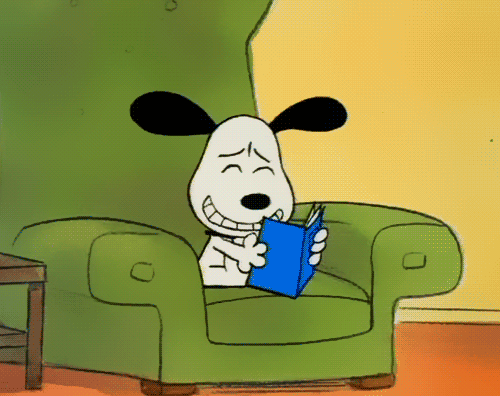
Next up is something that has been on my TBR for a long time, and that was The Crown’s Fate by Evelyn Skye. Ever since I finished The Crown’s Game, I have been desperate to pick this one up. I enjoyed it and am so glad I got my hands on a copy, but have to admit that it didn’t quite have the same gripping, out-of-this-world feel to it as the first. Definitely a series to pick up if you’re a fan of Caraval, The Night Circus, or anything that involves magic, duels, or a fantasy reimagining of the past.
It has also taken me this long to realise that even short reads count towards the book goal, which is why I was very glad that a friend gave me Chess by Stefan Zweig for my birthday. Not only was it short, but it was a classic – that I loved! A rare find indeed, and I’d recommend this little treasure to anyone who wants to read more classic literature but either doesn’t have the time, dedication, or willpower to invest in a longer tome.
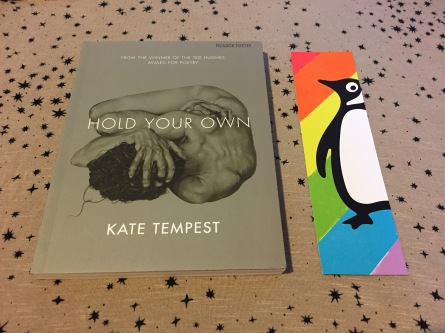
After that I read Hold Your Own, a poetry collection by Kate Tempest – and let me tell you, I have a new love for poetry. After my struggles with milk and honey (see here for more details), I was worried that maybe poetry was not my thing – but then of course I would think of sonnets and Shakespeare and epic and think surely not. The same wonderful friend who gifted me Chess also gave me this delight from Tempest, a collection that is framed around the mythology of Tiresias. Not only was the Classics student and mythology enthusiast inside me satisfied, but the whimsical, creative part of me was overjoyed. This collection is raw, honest, and does everything I had hoped milk and honey would do, seemingly effortless.
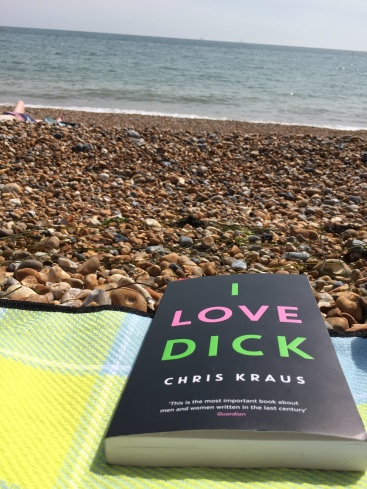
Next up is the book that had me delighted as well as terrified every time I brought it out of my bag in public, and that was I Love Dick by Chris Kraus. Honestly? I don’t even know what to say. Definitely not what I expected, as it is part memoir and part fiction. Whilst there have been books to genre blend fiction and non-fiction in the past that I’ve loved (looking at you Lincoln in the Bardo), this one was just not quite my cup of tea. I found myself skimming passages and then re-reading the same line over and over. Honestly, it made me feel quite inadequate and stupid, so I’m hoping my book club can enlighten me to all I missed when I was reading this.
Then, finally, we have Franny & Zooey by J.D Salinger, yet another short, delightful classic. It’s made me want to pick up The Catcher in the Rye as soon as I can, just because of the beautiful language. Each sentence is perfectly crafted and I can honestly say, as someone who isn’t a fan of classics, I enjoyed every moment. It didn’t feel like I was forcing myself to read an older piece of literature, but closer to just sitting back and simply relishing in brilliant writing that had me grinning every now and again. A brilliant portrayal of family relationships and our own relationships with religion.
And that is it! Six books this month and whilst two were short and one was a poetry collection, they all still count towards my reading challenge. Hurrah!
- ***4 ‘Classics’
- *A Man Booker nominee
- **A Baileys nominee
- *A Feminist Book cover to cover
- **‘A Blue Cover’
- *A Graphic Novel
- A Horror Book
- ***Finish a series you’ve started
- A friend’s favourite book
- **Poetry book
- *Book over 500 pages
- *Book under 150 pages
- Book with a character with your name
- *An autobiography
- **A play
- ***A book from your TBR
- *******Book published in 2017
So I now have two more notches for my ‘4 classics’ challenge, which means just one more to go thanks to Chess and Franny & Zooey. Crown’s Fate has another notch for the TBR challenge, Hold Your Own has another for poetry, and This is Going to Hurt gives yet another for the 2017 challenge. When I started these challenges this year, I originally had a book picked out for each category, but as I’ve gone along I’ve found it so much better to read whatever picks my fancy. I’m currently reading something for an uncompleted challenge, which makes me very happy, so here’s hoping August lets me tick a few more things off. So here’s to good books and talented authors, because who knows where I’d be without them.
